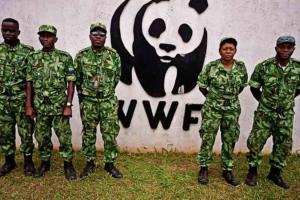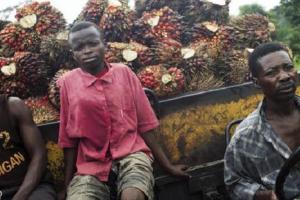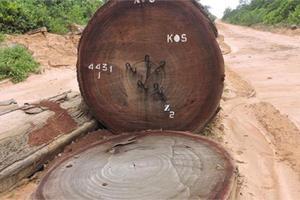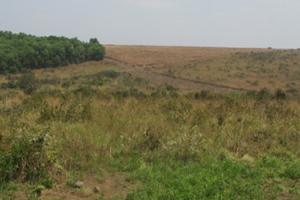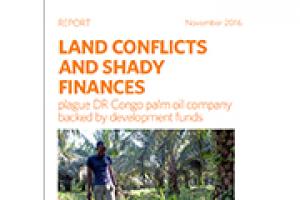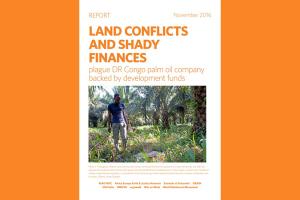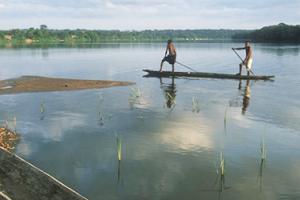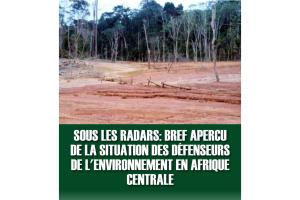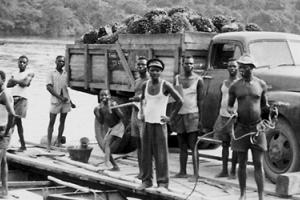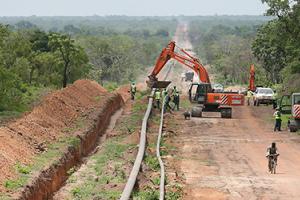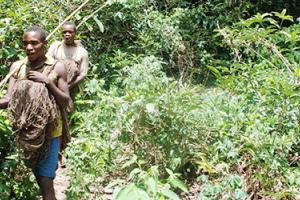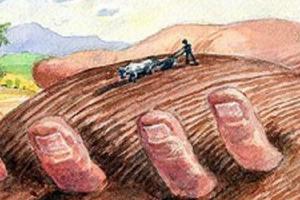A new Survival International report documents serious instances of widespread and systematic human rights abuses between 1989 and the present day in Cameroon, the Republic of Congo, and the Central African Republic (CAR) by wildlife guards funded and equipped by the World Wildlife Fund (WWF) and the Wildlife Conservation Society (WCS), the parent organization of New York’s Bronx zoo. Documented abuses and harassment are likely just a small fraction of the full picture of systematic and on-going violence, beatings, torture and even death.
Congo DR
Other information
23 November 2017
Bulletin articles
21 September 2017
Oil palm plantations managed by the Canadian-based agribusiness company FERONIA Inc have been opposed by local residents ever since they were established by the previous owner of the plantations, multinational food company Unilever. Incidents of violent abuse and conflict arising from the company’s oil palm plantations in the Democratic Republic of the Congo (DRC) have been a regular occurrence. In 2015, seven children were left orphaned after police killed both indigenous pygmy parents for taking some oil palm fruits from the plantations to feed their children.
Bulletin articles
21 September 2017
Bulletin articles
6 February 2017
Other information
3 November 2016
2 November 2016.
European and US development funds are bankrolling palm oil company Feronia Inc despite land and labour conflicts at its plantations in the Democratic Republic of the Congo (DRC). New information now raises questions as to whether the Canadian-based company misused millions of taxpayer dollars destined for international aid by way of companies connected to a high-level DRC politician.
Publications
3 November 2016
The report is also available in German, in Lingala and Swahili.
Bulletin articles
13 July 2016
The Congo Basin in Central Africa contains the second largest forest in the world. Its extensive territory is shared by six countries: the Democratic Republic of Congo, the Republic of Congo, Gabon, Cameroon, the Central African Republic, and Equatorial Guinea. With this Bulletin we seek to explore in depth and report on the intense land-grabbing that people are confronted with and resist in this region—a forested area that houses and provides the livelihood and sustenance for around 30 million people.
Other information
13 July 2016
This report aims to draw attention to violations and threats that environmental justice defenders in Central Africa are facing, specifically in the Congo Basin. The report is based on two studies. The first concerns the legal framework for the protection of environmental justice advocates in Central Africa. The second focuses on the inclusion of communities' rights in Central African countries.
Read the report in French.
Bulletin articles
13 July 2016
Oil palms are native to the forests of Central and West Africa and inseparable from the region’s peoples and their cultures. Communities in this part of the world have relied on oil palms for thousands of years— as a source of food, textiles, medicines and construction materials.
Bulletin articles
13 July 2016
(*)
Bulletin articles
13 July 2016
